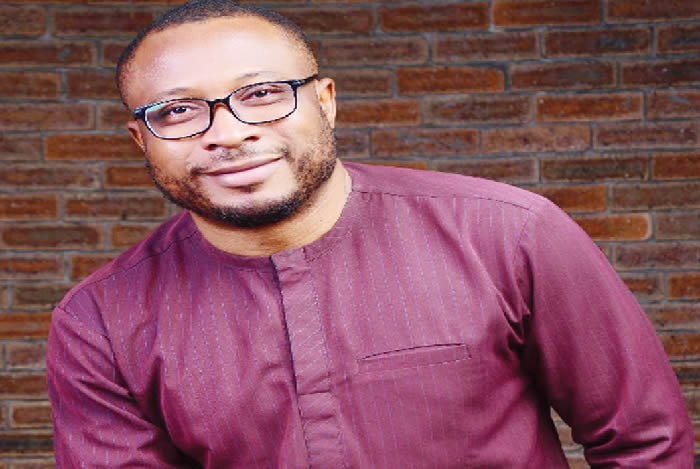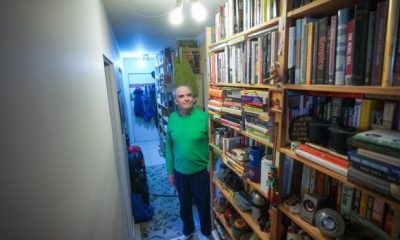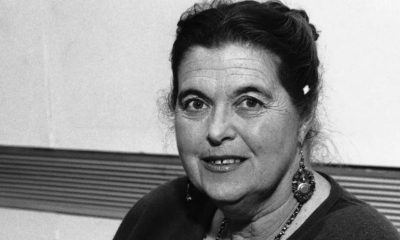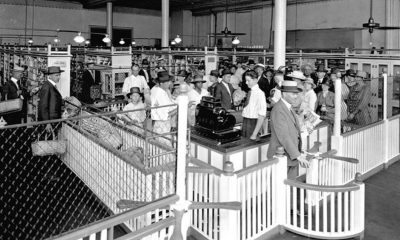Headlines
Most pirated books imported –Eghosa Imasuen

Author and co-founder of Narrative Landscape Press, Eghosa Imasuen, talks to BLESSING ENENAITE about his career, challenges and other issues
Tell us about your background
I am a medical doctor, an author and a publisher. I was born in Ibadan, Oyo State, in 1976. My mother used to be a pharmacologist; she obtained her degree from the University of Ibadan, Oyo State, but went on to study Law at the University of Benin, Edo State. She retired as a chief magistrate in the Delta State judiciary in 2010. My father was an engineer with Shell Petroleum Development Company before he started his own business. He died in 2018.
What influenced your decision to be an author and publisher?
To be honest, I do not have a profound answer for this. I liked writing and I found out that I was not terrible at it. In time, I found myself running the publishing company that published my books. I was also not bad at this. Then, I and a close friend, Anwuli Ojogwu, founded Narrative Landscape Press in 2016.
What are the challenges you face as an author and publisher?
As an author, (finding) the time to write is a challenge for me. As a publisher, my challenge is Nigeria. Everything can be summed up in that word. Our home country demands a lot from its citizens and everyone finds themselves having to focus on survival instead of on thriving.
Will you say that ‘Fine Boys’ is your most notable work so far as an author? What did it take you to write the book?
‘Fine Boys’ is my most satisfying work to write so far. It did not take a lot from me as its characters were living a life that I had lived. I think what it gave me was the satisfaction of seeing these characters speak as my friends and I spoke. I also saw that these lives were now important enough to be in a book.
Which other books have you written and how will you describe their reception so far?
I have written only two books. ‘To Saint Patrick’, my first novel, was an alternate history novel that traced its plot back to the Nigerian Civil War. ‘Fine Boys’ was my second book. I will say that they have been received well.
It has been said that eBooks are taking over hard copies. Do you believe in this notion?
It is one of those things that people say. Things rarely take over older things. Instead, after the initial gragra (hype), every new thing finds its niche in the zeitgeist. You see this with the history of cinema, television and radio. Television was the great disruptor. It would defeat and replace the cinema at the multiplex and the radio at home. But this is not what happened. Instead, radio moved to the car and primetime hours shifted to the drive to work and the drive home, and the cinema moved up in audience appreciation and the weekend matinee was born as a special event. We will see the same thing with eBooks. They seem to serve as adverts for the printed book. I know people who, after seeing a book for the first time in their pads and Kindle readers, go on to purchase the printed book so that they can feel that they actually own the book. One will not replace the other. It will just add to the reader’s choices and experience.
It has been said that Nigerians do not read. Hence, the sale of books is not that profitable if the author is not popular. What do you have to say concerning this?
People do not read as much as we would want to. It is a lost battle. But still we write, because our audience is out there. They are whom we write and publish for. They are enough to satisfy us.
Do you think the government has a role to play in encouraging the reading habit among the citizens?
I do not think so.
Materials for publishing are quite expensive. In what ways can the government help in this regard?
The government can help by getting out of the way. When a government tinkers too much, they hinder more than they help.
How will you describe your relationship with other authors?
It is the same as my relationship with other people. It is cordial and friendly.
How do you manage Farafina and Narrative Landscape Press?
I did not manage both at the same time though. I joined Kachifo Limited, publishers of the Farafina imprint of books in August 2013 as the chief operations officer. It required a steep learning curve. I already had experience in business, but publishing is another aspect altogether. I learnt what I had to and I ran the company for three years until I left to co-found Narrative Landscape Press with my friend, Anwuli Ojogwu.
Your publishing company is notable for printing the Nigerian version of Chimamanda Adichie’s novels. How will you describe your relationship with her?
I consider Chimamanda Adichie as a friend. Now that she is also an author (whose books are) published by my company, we have a professional working relationship. It is a good experience.
Do you think authors are duly rewarded and recognised for their works?
The satisfaction an author derives and the reward they seek is to have their work read and loved by readers. Now, I am on the two sides of this conversation, as a writer and a publisher. I can tell you that it is never enough. Remuneration can always be better. However, recognition is relative.
Most authors use their works to speak about the ills of society. Will you say that is the case for you?
Most authors? I do not think this is correct. I think that after we have written and are asked why we wrote this or that story, we come up with answers that journalists want to hear: ‘It was about this issue in society or that issue’. The reason we write is because we cannot not write (We cannot say we don’t want to write). Society is full of ills, so it is a nice coincidence that when we write, there are ready subjects. Even in a utopia, writers will write. This is important. Agenda-driven work tends to be bad if it is not undergirded by real interest and talent. If a writer is pitching a work to me for publishing and they lead with the agenda or the ‘societal ill’ they are trying to engage with, I begin to fear the work’s quality. However, if they lead with the people, characters, conflict, theme and the other elements of fiction, I become hopeful that the work in question is going to be worth considering.
How do you get inspiration for your work?
I do not know. Maybe from dreams, a stranger’s smile, daydreaming during a drive to work or from other things. I cannot answer the question.
Do you experience writers’ block and how do you deal with it?
Writers’ block is not the thing that most people think it is. (The question should be) do I procrastinate? Am I lazy? Do I fear the work I have given myself during the planning for the book I am writing? A writers’ block to me is all these things. One can cope with it by sitting down to write. It may be horrible and it may be bad, but one cannot edit a blank page. One has to get it down on paper and worry about its quality later.
How do you think Nigeria can overcome book piracy?
Nigeria can begin to overcome book piracy by ensuring that piracy is painful for the pirates. Right now, the theft of intellectual property is perceived as a victimless crime. There is nothing like a fake book. Unlike fake food and fake drugs, a fake book will not harm its consumer. Hence, consumers are not allies in this particular situation and efforts at educating and sensitising our consumers, or readers and listeners, will not work. They just want the cheapest version of our work. The target here is the pirates. We must steer their capital into more proper outlets just like what happened with music and the Alaba Market producers. The vast amount of capital that was out there chasing pirated CDs eventually found its way into marketing deals with the authentic singers and producers.
In relation to how this will work for books, we will say that the Ajegunle Book Market is our analogue of the Alaba Electronics Market. Ours is still a vibrant cesspit of pirated titles. Most pirated books are imported and come through the ports. While the Nigeria Copyright Commission has made it more difficult to bring pirated books into the country, they still come in. The enforcers, criminals and readers all feel deep down that no one is really harmed by piracy. They are right in a way. No one is harmed despite how painful it is to see one’s work on sale in traffic and know that it is a fake copy. Nevertheless, the economy and innovation is harmed. New ideas are stifled. This is where the fight is. Piracy should be made painful and the capital should be forced into the proper channels.
If the marketers in Ajegunle knew how easy it would be for them to obtain rights to print their versions and editions of our books, as compared to time in jail for stealing from us, their money would follow the path of least resistance and we would be signing deals with these people.
The paper industry in Nigeria is struggling due to the non-functional status of the three paper mills in the country. How have you been able to manage this? Do you depend heavily on imports?
We print most of our books overseas. This is a lost battle. It is cheaper to print in South Asia. Things like the state of the paper industry and the United Nations Educational, Scientific Cultural Organisation (UNESCO) Florence Agreement of 1950 and its 1976 Nairobi Protocols combined to make it so.
How can authors help in nation building?
Authors can help in nation building by creating and becoming an industry. Also, by becoming the conscience and mirror for their societies.
What advice do you have for budding writers?
I will advise them to read.
What are your memorable moments as an author and publisher?
The day I saw my first book in print in 2008 was memorable for me.
What are your hobbies?
My hobbies are swimming and playing video games.
How do you like to dress?
I like to dress smart casual, either African or Western.
























